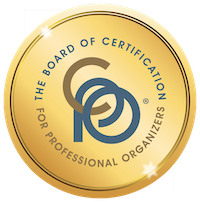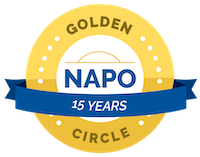Lessons learned from 2019 NaNoWriMo

On November 29, I finished writing a novel. Every five years since 2004, I’ve participated in National Novel Writing Month and each of those years I’ve succeeded in writing a 50,000-word novel in 30 days or fewer. It felt great to finish. I was very busy with client work this November, so writing my novel required me to get up an hour early to squeeze in my words and I was ready to sleep in!
This morning I thought I’d blog about the lessons learned and I looked to see what I’d written in the past. When I read my lessons learned post from five years ago I was struck by the fact that it contained the exact lessons I’d been reflecting on this year. So I’m just updating it a bit but otherwise running it as is. (Let it be easy, right?)
Here are some of these tried-and-trued lessons:
- Strive for imperfect. By embracing imperfection with this novel, I took the pressure off myself. For me, it was about achieving the goal of completing the novel, not about writing something amazing. Since I think about imperfection so much as the co-host of the Getting to Good Enough podcast, this really hit home this year. My co-host Shannon Wilkinson was also participating in NaNoWriMo this year and we did a couple of episodes on the NaNoWriMo adventure.
- I can find an extra hour in the day. It took me about an hour each day to write my word quota. I almost always did it at the beginning of the day, which meant I just got up an hour early. If I can do that to write a novel, I can do it for other activities like, say, exercising or genealogy research. (“I’m too busy” is feeling like a lame excuse not to exercise.)
- Short term goals are easier to achieve. If I’d set out to write a novel in a year, I probably would have quit after a fairly short time. Knowing I had to do this for only 30 days made it a lot easier to start. I think this applies to all sorts of habit-creation goals. If I tell myself I’ll do something daily for a week (or even two days), I’m a lot more likely to be successful than if I set a one-month or six-month goal.
- Setting interim goals and tracking progress is really helpful. 50,000 divided by 30 is 1667. So I knew my daily word quota. And, thanks to the awesome spreadsheet Shannon created for us in 2009 when we were working on a NaNoWriMo novel, I knew exactly where I stood each day. Filling in my word count every day and seeing if I was above or below my daily goal and my running goal for the month was really rewarding. It felt much more powerful than just keeping an eye on my total word count of the book. This year we had a small group of NaNoWriMo participants supporting one another on the Getting to Good Enough Facebook group. We had shared Google sheet and I enjoyed entering my word count and seeing how others were doing.
- Slow and steady wins the race. I talk with my clients all the time about how if they work on decluttering or organizing just 15 minutes a day, they’ll eventually get it done. I wrote this novel 1667 words at a time. On my biggest writing day I wrote 2592 words and on my most challenging day, I wrote 573, while I was on a girls’ crafting weekend. But generally I wrote between 1600 and 1700 words each day.
- Getting the big task done first thing in the morning can be powerful. I would not have wanted my words hanging over my head all day. If I hadn’t been able to write first thing in the morning, I don’t think I could have finished this novel. I’ve learned over the years that if I want to get something done I do it first thing. That’s helped me safeguard my early-morning time. It was fantastic starting every morning in November with an achievement!
I don’t feel the need to prove to myself every year that I can do this, because, frankly, writing a novel in a month isn’t exactly my idea of a good time. But every five years I seem to get the itch. And no matter what challenge I set for myself, I’d be smart to remind myself to these lessons I learn every five years from writing a novel!
Tagged with: deadlines, goals, nanowrimo, productivity, writing
Comments
Links
- National Association of Productivity and Organizing Professionals
- Are you interested in becoming a professional organizer?
- Peace of Mind Spending
- Shannon Wilkinson, life coach
- NAPO St. Louis
- Getting to Good Enough podcast
- Institute for Challenging Disorganization
- Organize Your Family History
- Ravelry








